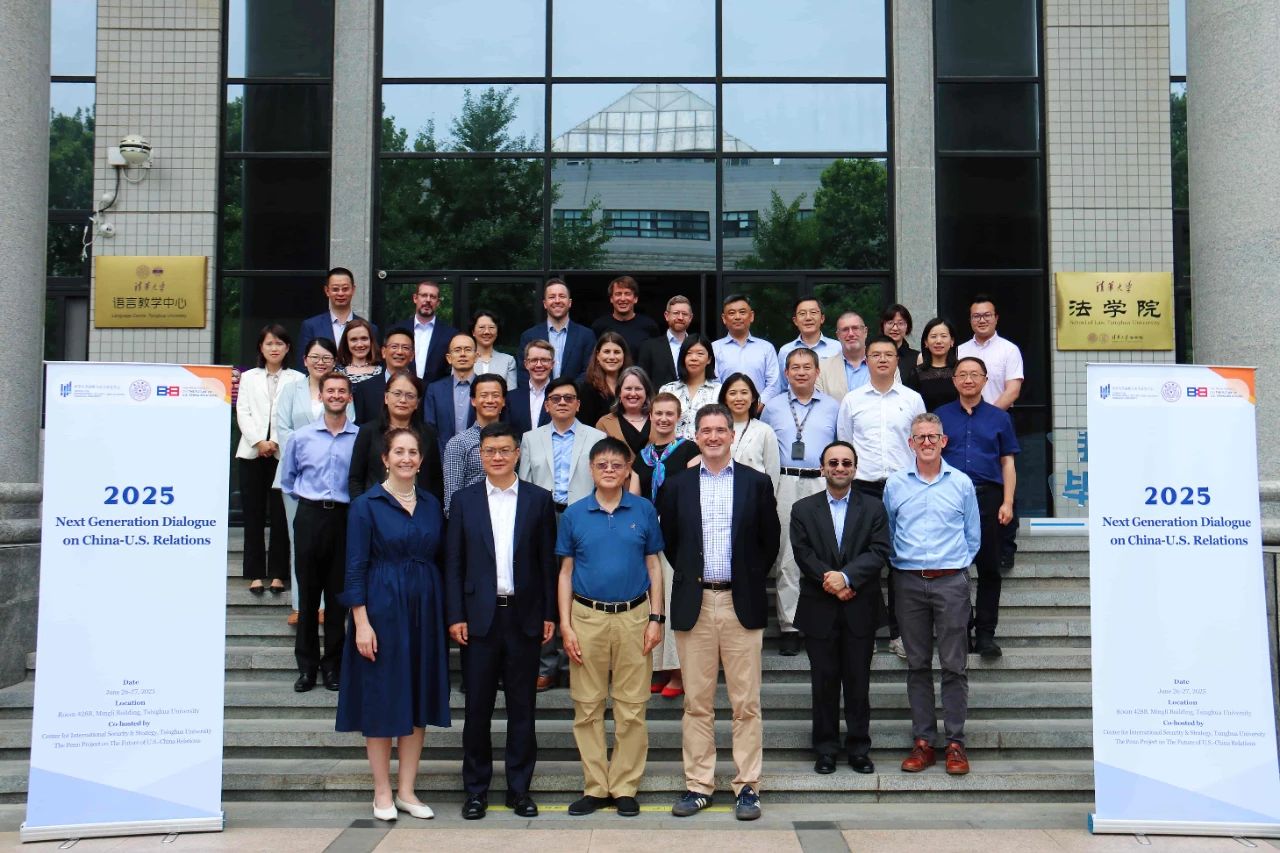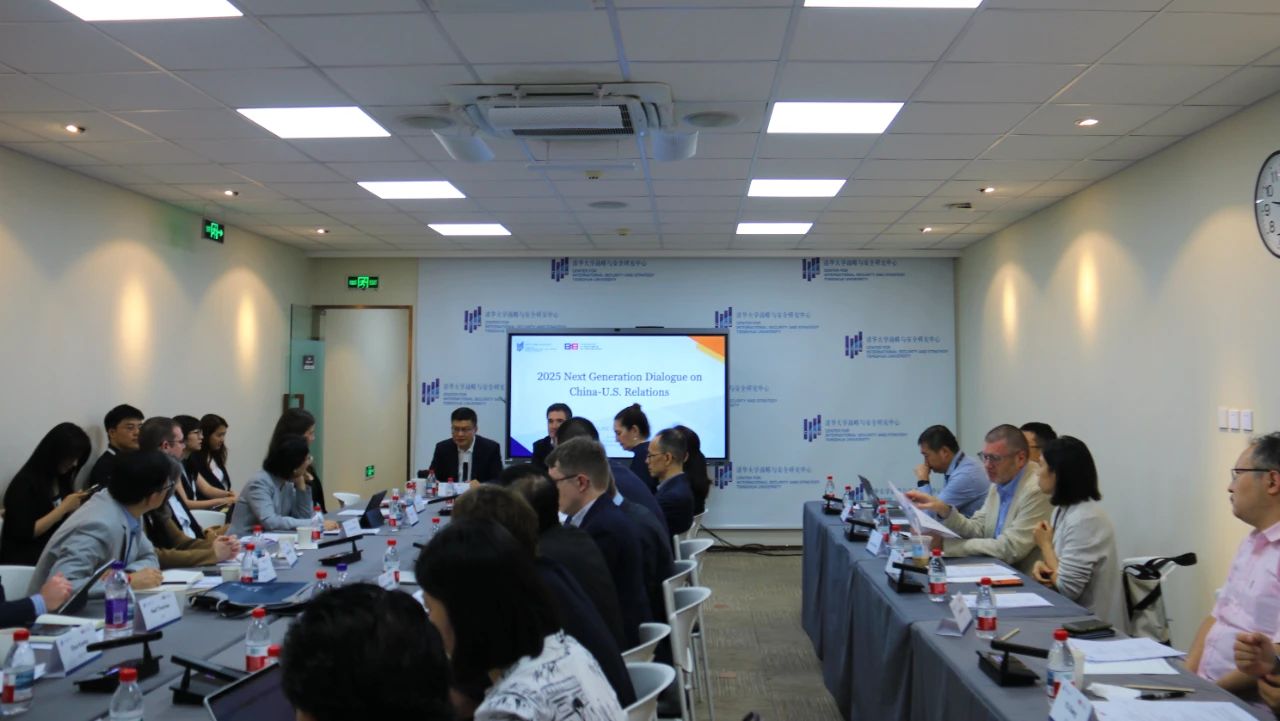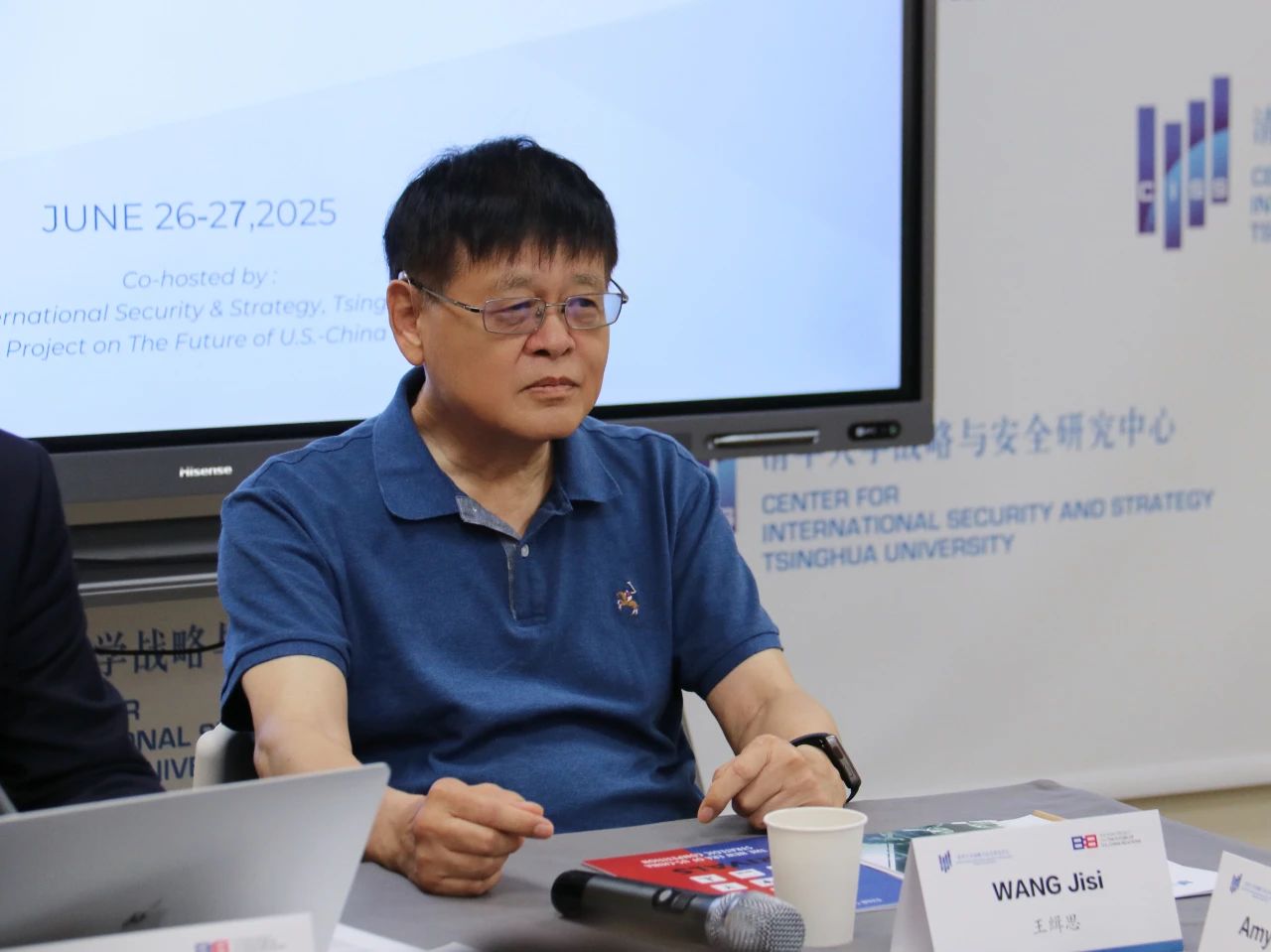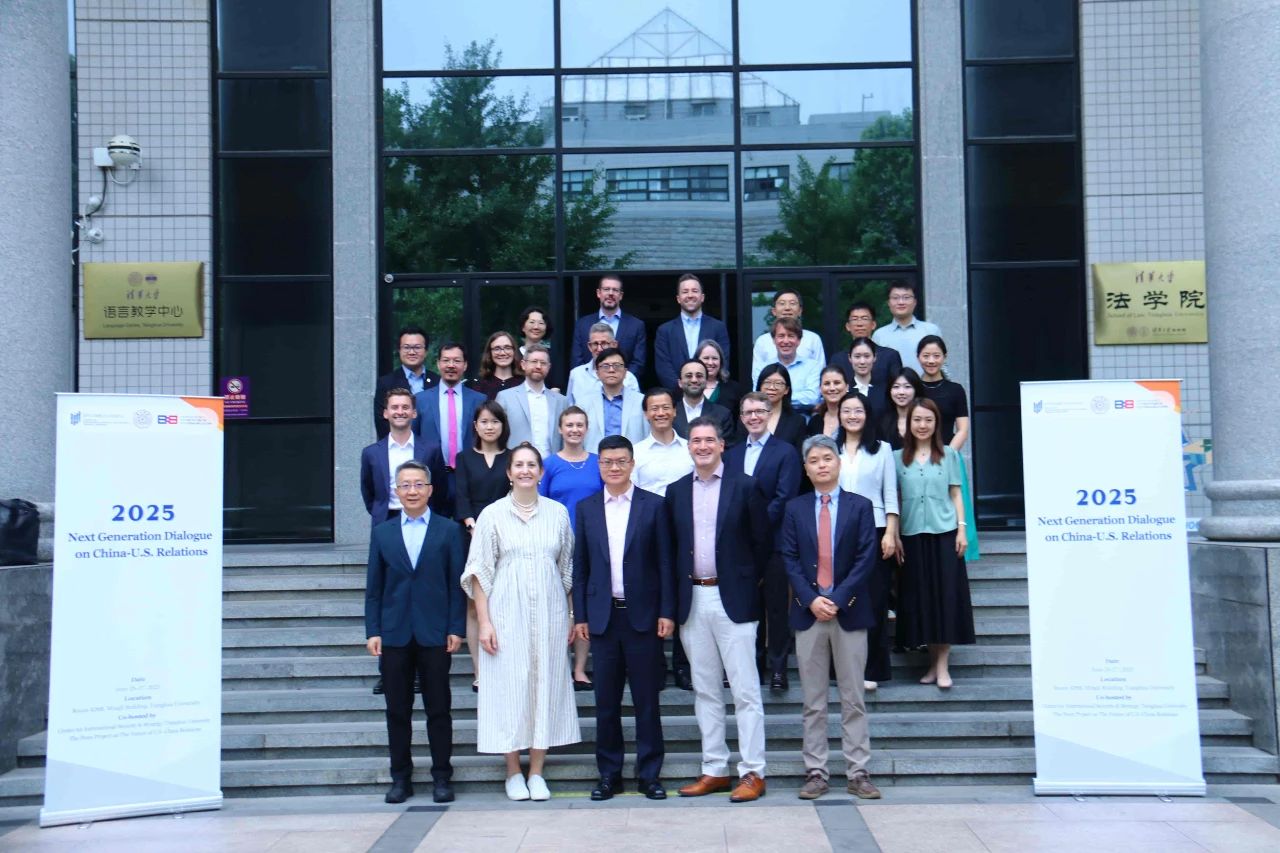From June 26 to 27, 2025, the Center for International Security and Strategy (CISS) at Tsinghua University and the Penn Project on the Future of U.S.-China Relations at the University of Pennsylvania jointly hosted the “2025 Next Generation Dialogue on U.S.-China Relations” in Beijing. More than 40 scholars and experts from both China and the United States participated in the event, engaging in in-depth discussions on key issues in the bilateral relationship, including national security, research and education, climate and environment, human rights and global governance, and trade and economics.

The event officially opened on the morning of June 26. Da Wei, Director of CISS, and Neysun Mahboubi, Director of the Penn Project, delivered welcome remarks. Da Wei introduced the background of the dialogue, noting that it has become an annual exchange between the two institutions. He emphasized that given the many challenges facing China-U.S. relations, academic exchanges are especially valuable, and this interdisciplinary dialogue will help foster mutual understanding and cooperation. Mahboubi reviewed the history of collaboration between the two sides, highlighting how communication and trust have enabled the success of the partnership. He expressed appreciation for the strong support from the CISS team and looked forward to the dialogue injecting fresh momentum into China-U.S. scholarly engagement.

The first session focused on “National Security”, where participants exchanged views on the concept of national security, the Taiwan Strait situation, and strategic trust between China and the U.S. Experts emphasized the need to strengthen crisis management and strategic communication to avoid misjudgment and conflict, and to guide bilateral relations back to a path of rational cooperation.
At midday, Wang Jisi, Founding Dean of the Institute of International and Strategic Studies at Peking University, delivered a keynote address. Drawing on his personal experience in China-U.S. engagement, he reflected on the cognitive gaps and cultural foundations in the bilateral relationship. He emphasized that China and the U.S. should transcend ideological differences and engage in dialogue with an inclusive, equal, and respectful attitude.

In the afternoon session on “Research and Education,” scholars discussed the sustainability of academic exchanges, cooperation mechanisms in higher education, and the mobility of young talent. Both sides agreed on the importance of building more resilient and equitable mechanisms for scholarly interaction to enhance mutual understanding and strengthen the humanistic ties between China and the U.S.
In the “Climate and Environment” session, participants held in-depth discussions on climate governance cooperation, green transition development, and international climate collaboration. Experts agreed that addressing climate change is a vital area of China-U.S. cooperation where the two countries possess complementary strengths, and that both sides should explore bilateral and multilateral mechanisms to inject confidence into global green development.
On the morning of June 27, the dialogue turned to“Human Rights and Global Governance” .Experts discussed issues such as the applicability of human rights standards, the provision of global public goods, and discourse power in governance. They emphasized the need for practical cooperation between China and the U.S. in areas such as humanitarian aid, global health, and sustainable development, to rebuild trust in multilateralism and advance a more inclusive and balanced global governance system.
The final session on “Trade and Economics” focused on macroeconomic policy coordination, supply chain resilience, and investment environments. Participants agreed that the economic foundation of the China-U.S. relationship remains strong and that both countries should pursue pragmatic consultation and interest-balancing, seeking new areas of alignment in technological cooperation, green transition, and regional development to build a healthy, stable, and predictable economic partnership.
Experts and scholars from over 20 institutions in China and the United States participated in the dialogue, including Tsinghua University, Peking University, Renmin University of China, China University of Political Science and Law, Shanghai Institutes for International Studies, Beijing Foreign Studies University, China Construction Bank Research Institute, Chinese Academy of Social Sciences, Chinese Academy of International Trade and Economic Cooperation of the Ministry of Commerce, as well as the University of Pennsylvania, Harvard University, Georgetown University, Princeton University, the University of Texas, Fordham University, Syracuse University, and California State Polytechnic University.
Participants highly praised the dialogue, noting its significance against the backdrop of intensifying major-power competition and ongoing regional conflicts. Both sides expressed hope for more opportunities for exchange in the future, to support in-depth, pragmatic discussions and inject academic strength into the healthy development of China-U.S. relations.

